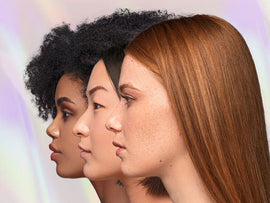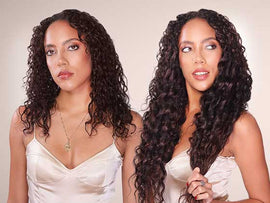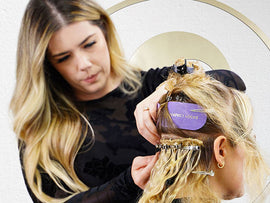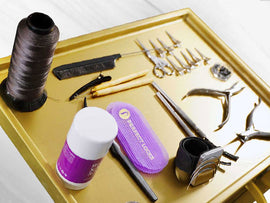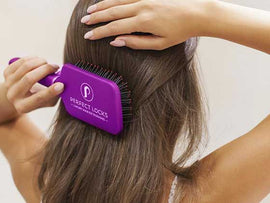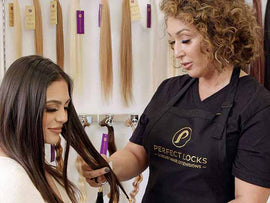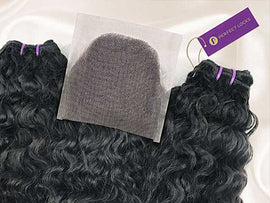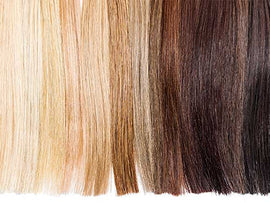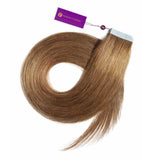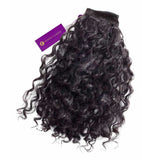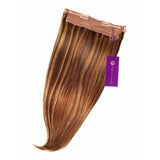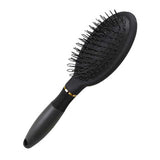



Seniors' Guide to Aging and Thinning Hair
Aging can be challenging, especially when it comes to health and appearance. Among other concerns, thinning hair is one of the most common occurrences for seniors. While it's normal to lose some hair as we age, excessive thinning can be bothersome and even embarrassing. The following are ways for you to deal with thinning hair as you grow older, so keep reading if you like! We'll outline some helpful tips to make this process a little easier.

How Does Aging Change Hair?
Hair is the fastest growing tissue in the body, and hair follicles are among the most active cells in the body. Anagen, the growth phase, lasts two to six years, while telogen, the resting phase, lasts two to three months.
It is estimated that between the ages of 30 and 70, most men and women experience some degree of hair thinning. It is a completely natural process and nothing to worry about. Hair loss can be accelerated or exacerbated by several factors, including stress, poor diet, illness, hormonal fluctuations (pregnancy, menopause), medical conditions, vitamin deficiencies, and medications.
Men commonly experience male-pattern baldness, which usually involves thinning hair at the temples and crown. While men tend to lose their hair in a recognizable pattern, women typically experience thinning all over their heads.
After menopause or andropause (decreased testosterone), many women or men see changes in their hair that may include:
- Thinning on top of the head
- Increased facial hair (women)
- Decreased body hair (men)
In your 20s
Your hair was at its best in your 20s – for the most part.
It wasn’t that your hair was healthier; it was that you were taking fewer medications and using fewer styling products than you will later in life.
In addition, the health of your hair reflects the health of your body. Your hair may be at its healthiest in your 20s because you are generally in the best physical shape of your life.
In your 30s and 40s
Hair growth, thickness, and shine. In your 30s, you might notice that your hair grows at a slower rate than it once did. It's also likely to become finer and thicker.
Possible color changes. As a result, you might notice that the color of your hair is becoming darker or lighter than it used to be.
The texture of your hair may change as well: Your curls may loosen or straighten, or vice versa. This can also affect the part in your hair — it may not behave as it once did!
As for grays, they will eventually appear (sooner if you have a family history of graying). The tops of the ears are the first places they'll show up.
Everyone ages at a different rate, and your hair is no exception. But some common signs of aging become apparent in your 40s.
Graying is caused by a reduction in melanin, which gives hair its color. Hair turns gray or silver with less pigment, but it can also lose its luster, becoming dull and dry-looking. The follicles on the top of the head begin to shrink and gradually produce thinner hair strands until they eventually stop producing altogether. This is more common in women than men because men have higher amounts of testosterone which causes their hair follicles to grow thicker hairs than those produced by women’s follicles.
In your 50s and 60s
In your 50s, you may notice that it takes longer for your hair to dry. You may also notice that your scalp seems thinner and more visible. In addition, you might find that your hair has become brittle or coarse. It might be harder to manage, too.
The changes that start in your 50s and 60s tend to continue into later life. Your hair may feel dry or brittle. It may lose its natural color and turn gray or white.
There’s no way to stop the effects of aging on hair, but there are treatments that can help with some of the problems it causes. These include:
- Hair dye
- Moisturizing products such as hair masks
Aging and Graying Hair
With age, hair follicles can get smaller as the ability to produce new cells decreases, causing hair to thin and eventually stop growing. In fact, about 50% of men and 30% of women experience some form of hair loss by their 50s.
With the aging process comes a change in the hair fiber’s natural color. Both melanin and keratin production slows down as we age and cause our hair to gray, or go white. The melanin in our body is what gives our skin its tone and our eyes its color. It also provides pigment for our hair, which determines whether we have blonde hair, brown hair, or red hair.
As you age, your cells start to lose the ability to divide, which means the cycle of hair growth and hair loss is disrupted. Your hair strands become shorter and finer, and the rate of hair growth slows down. This explains why we tend to lose some hair as we age.
In addition, aging causes follicles to shrink, producing smaller hairs that are more easily lost. This can result in bald patches or thinning hair.
Why Is It Common To Lose Hair As You Age?

Several factors contribute to hair loss as we age. Some are related to changes in the body that come with aging, such as fluctuations in the levels of certain hormones. Others are related to age-related changes in the immune system. Still, others are related to external factors like sun exposure.
Genetics
Genetics, or inherited traits from parents, also play a role in determining the health of your hair. As we age, our bodies and hair change due to our genetics. The genetic changes that occur with aging result in a gradual thinning of the hair.
Genetics may also affect the health of your hair follicles. For example, some people lose their hair (androgenic alopecia) while others have naturally thin hair (diffuse alopecia) because their follicles are sensitive to a certain hormone called dihydrotestosterone (DHT).
Overactive or Underactive Thyroid
Thyroid issues are common in people with hair loss. An overactive thyroid gland (hyperthyroidism) produces an excess of thyroid hormone and can cause unexpected weight loss, rapid heart rate, sweating, and nervousness.
An underactive thyroid gland (hypothyroidism) doesn't produce enough hormones and can leave you feeling tired, weak, and cold. It can also lead to weight gain, dry skin and hair, and heavy periods.
Medication
Medication is a common cause of hair loss. Many medications can cause hair to thin or fall out. This type of hair loss may be caused by various medications, including those listed below.
- Anticoagulants (blood thinners)
- Birth control pills
- Blood pressure medications
- Antidepressants, especially selective serotonin reuptake inhibitors
- Anticonvulsant (anti-seizure medications)
- Cholesterol-lowering medications, such as statins
- Gout medication, such as allopurinol
- Isoniazid (Nydrazid), taken for tuberculosis
- NSAIDs, such as aspirin and ibuprofen work by reducing inflammation in the body.
Severe Infection
Infections such as flu, high fever, and measles may lead to temporary hair loss in children and young adults. This is because the body’s immune system reacts strongly against infections and sends a large amount of blood to fight them, which results in less blood flow to other parts of the body, including the scalp. Hair follicles in their resting phase during this time fall off as soon as they receive blood again after the infection is cured.
Alopecia Areata
Alopecia areata is a kind of hair loss that happens when your immune system mistakenly attacks hair follicles, where hair growth begins. The affected follicles become small and drastically slow down hair production.
Hair loss in patches is the most distinctive symptom of alopecia areata. Other symptoms include:
- Hair loss starts suddenly, leaving smooth, round bald patches.
- Single bald patches on the head or other areas, such as the beard or eyebrows.
- Nail changes, such as small pits on the nail’s surface; soft and brittle nails; or nails that have separated from the skin underneath (onycholysis).
Other Autoimmune Diseases such as Lupus
Lupus can cause hair loss as well. With lupus, the immune system attacks the body, leading to inflammation in various parts of the body. The inflammation around the hair follicle can cause damage to the hair follicles and result in hair loss.
Severe Stress
Stress affects your entire body, including your hair. Stressful events or prolonged and severe stress can trigger a condition known as telogen effluvium, which pushes large numbers of growing hairs into the resting phase. Three months after the stressful event, these hairs may fall out suddenly when simply combing or washing your hair. The good news is that this type of hair loss is only temporary, as long as the level of stress in your life returns to normal.
Pregnancy/Childbirth
This can also be a cause of hair thinning. It has been seen that your hair starts to thin after your baby. This happens due to the sudden hormonal change caused by the pregnancy. You lose a lot of hair during the first six months after childbirth, but it grows again over time.
Major Surgeries
These can cause sudden large amounts of hair to fall out 2 to 3 months after surgery due to a condition called telogen effluvium. This can last 6 months or longer, but the hair will eventually grow back in most cases.
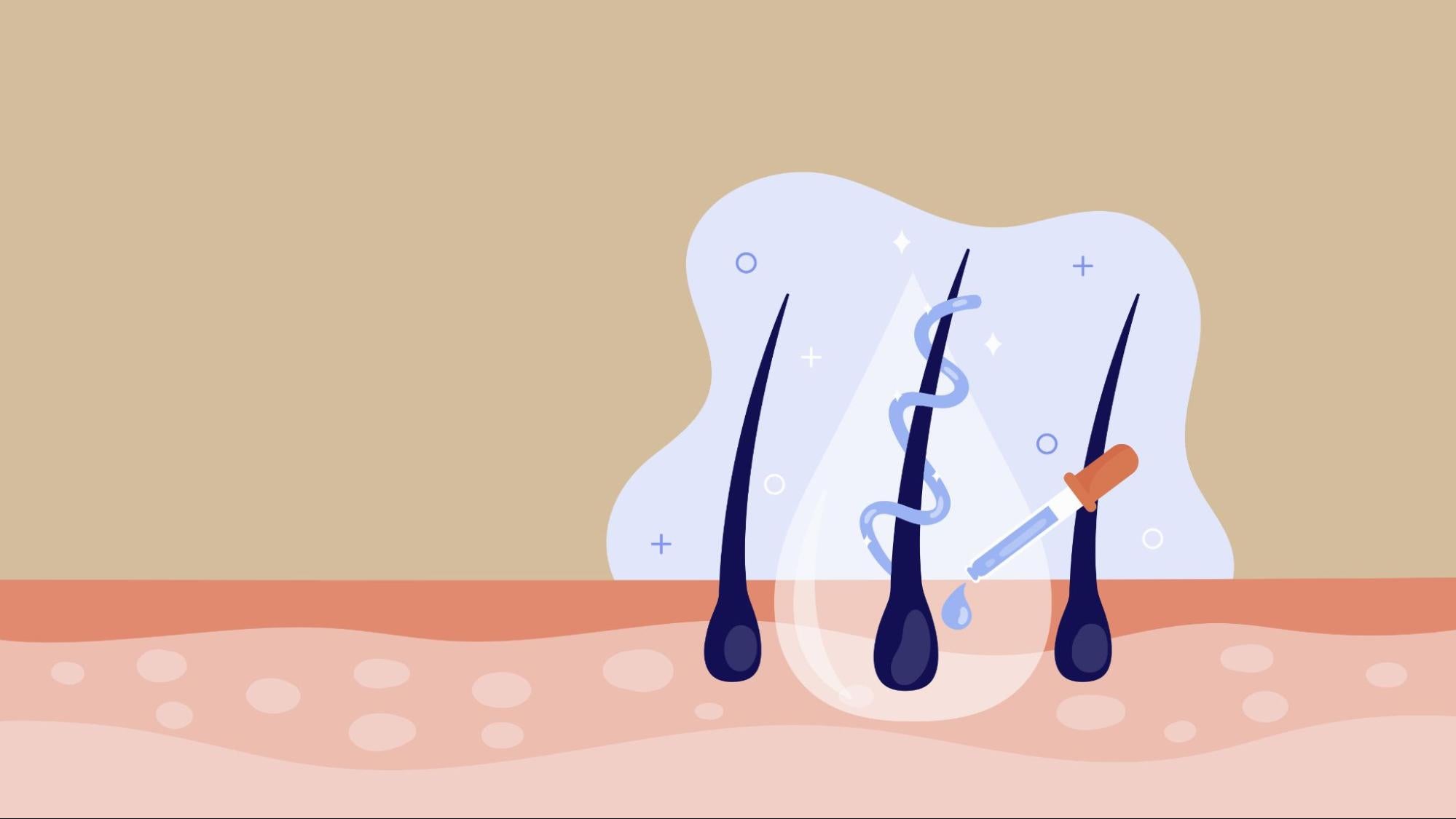
Basic Care Tips for Thinning Hair for Seniors
Most of the common hair-care tips you'll find on the internet may not be suitable for seniors. This is especially true for those who have restricted mobility or those who are living in assisted homes. Why? Because their hair-care needs are different from younger people.
For Thinning Hair
The causes of hair thinning in seniors are varied, and it's crucial to find the root cause before treating the symptoms. Thinning hair can be caused by stress, medication, illness or even genetics.
For seniors with mobility issues, their ability to perform basic care tasks like brushing their hair may be limited. Loss of dexterity may make simple things like holding a comb difficult, and that's where specialized products like the Folding Hair Comb come in handy.
This simple folding comb is designed for easy use by seniors or anyone with dexterity issues. It folds into a compact size for convenient storage and unfolds for easy use. The design also makes it easier to brush through tangled hair without hurting fingers or hands.
For Breakage
If you find that combing your hair or washing dishes is breaking your hair, you may want to cut back on the amount of time you spend doing these activities. Having someone else do them for you is also an option if you're living in an assisted living facility or have a caregiver coming into your home.
Use a wide-tooth comb or a wet brush to comb out tangles, not a fine-tooth comb. A wide-tooth comb will cause less breakage than a fine-tooth one will. If your tangles are very bad, try diluting the conditioner with water and then spraying the mixture through your hair before trying to comb out tangles. Use a fine-comb only after most of the tangles have been removed with a wide-tooth comb or wet brush.
Color Changes
For the senior with limited mobility, but who needs a color change, there are several options. One is to bring the salon to your home. An experienced hairdresser can come to your home and do your hair in the comfort of your own chair. If this isn't possible, you can still get out of the house and go to a salon that specializes in serving seniors. These salons allow you to remain in your chair for the entire process, including washing your hair.
If you're living in an assisted living community, there may be a beauty salon on-site. Most on-site establishments accept walk-ins. But for convenience and comfort, setting an appointment in advance will help.
Scalp Dryness
This is the chief cause of hair problems in seniors. When your scalp is dry, it loses its natural oils and moisture, which makes it difficult for your hair to grow. Your scalp can become dry due to:
- Dry climate
- Excessive use of styling products
- Swimming in chlorinated pools
- Over-shampooing
- Frequent blow-drying or using hair straighteners
To prevent dry scalp from leading to hair loss, you should start by avoiding the above causes. If these steps don’t help, you should use a moisturizing shampoo designed for seniors and pair it with a moisturizing conditioner.
Conclusion
Although there are many causes of hair loss, the good news is that most cases can be treated or managed. In this seniors’ guide to aging and thinning hair, we’ve outlined some of the most common causes and treatments for hair loss in older adults. Many effective treatment options are available, so there’s no need to feel embarrassed or ashamed about your condition. With a bit of patience and perseverance, you can restore your confidence and keep your head held high. You can also ensure that your hair stays healthy by using a quality product or service like shampoo for seniors with thinning hair!
References
HealthEssentials. (June 30, 2020). Your Guide to Aging, Thinning Hair: 5 Simple Tips. Cleveland Clinic, from https://health.clevelandclinic.org/your-guide-to-aging-hair/
Lawrence E. Gibson, M.D. (Nov. 03, 2021). Preventing hair loss in women. Mayo Clinic Org, from https://www.mayoclinic.org/diseases-conditions/hair-loss/expert-answers/preventing-hair-loss-in-women/faq-20452842
MedlinePlus. (February 04, 2022). Aging changes in hair and nails. Medline Plus Gov, from https://medlineplus.gov/ency/article/004005.htm
Gabrielle Applebury. M.A., Marriage and Family Therapy. How to Care for Mature Hair. Seniors Love to Know, from https://seniors.lovetoknow.com/How_to_Care_for_Mature_Hair

